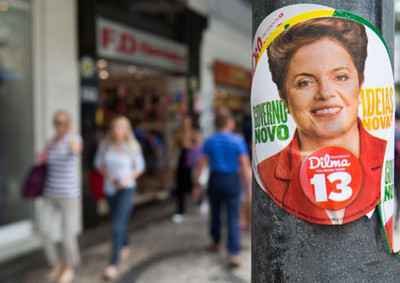Despite the massive protests prior to the Brazilian election, calling for sweeping changes to Brazil's domestic policies, Dilma Rousseff was reelected Brazilian president for the second term.
尽管巴西选举之前曾经爆发过大规模呼吁全面改革国内政策的抗议活动,但迪尔玛·罗塞夫仍旧再次当选巴西总统。
This has proved that Dilma Rousseff's social programs designed to improve the lives of the poor and efforts to raise Brazilian's income have paid off.
罗塞夫的当选证明了她旨在改善穷人生活及努力提高巴西收入的的社会项目终有所偿。

But the neck-to-neck race, to some extent, also posed challenges to Rousseff in her second term.
但这场不分胜负的竞争在某种程度上也为罗塞夫的第二任期带来了挑战。
President Rousseff has yet to prove that her industrial policies are beneficial to the Brazilian economy, which are facing mounting downward pressure.
罗塞夫总统尚未证明她的产业政策能挽救正走下坡路的巴西经济。
Her stance on regional trade integration during her second term can have a far-reaching impacts on the rest of Latin America.
第二任期内的她对地区贸易一体化的立场可以对拉美其他国家产生深远影响。
So how do experts assess the outcome of the Brazilian election?
因此专家如何评估此次巴西大选的结果?
What changes might Rousseff bring to Brazil during her second term?
罗塞夫的第二任期内会给巴西带来什么变化?
译文属可可原创,仅供学习交流使用,未经许可请勿转载













